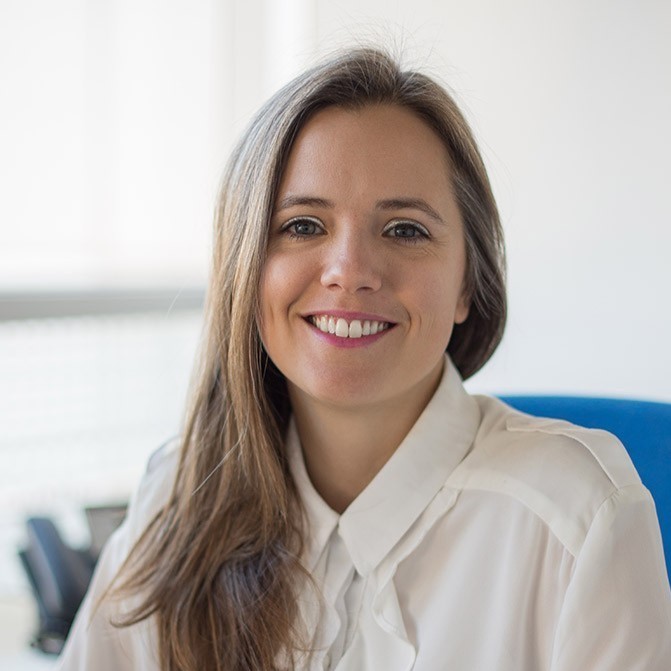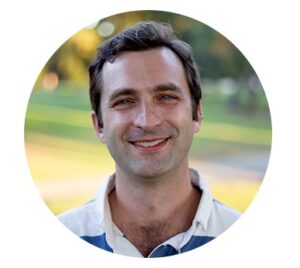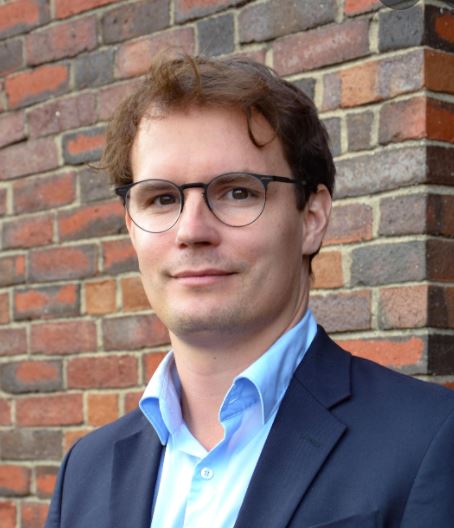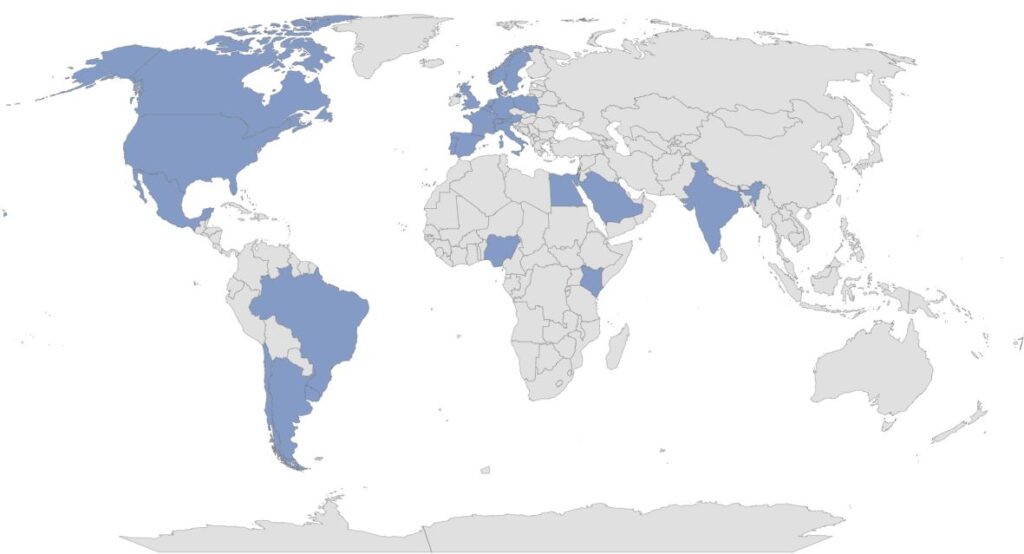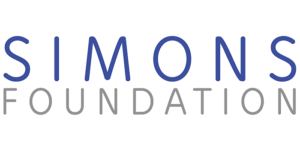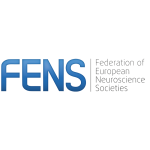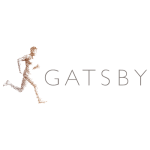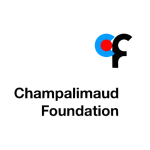Course overview
Genetically encoded tools for neuroscience enable precise observation and manipulation of defined neural cell types, in behaving animals. This course provides both breadth and depth in the theoretical and practical application of these tools across a variety of classes including experimental designs, and with an emphasis on hands-on experience.
After completing this course, a student should expect to be knowledgeable about a wide range of molecular tools, have experience with multiplexed read/write experimental design, understand how to integrate optical hardware with rodent behavior, and appreciate nuances between 1-photon and 2 photon implementations. Interpretation and data analysis are integrated across the course.
Course directors
Weizmann Institute of Science, Israel
Bordeaux University, France
University of Texas, Austin, USA
Keynote Speakers
Camilla Bellone – Univ. of Geneva, Switzerland
Christina Kim – UC Davis, USA
Karl Deisseroth – Stanford University, USA
Mackenzie Mathis – EPFL, Switzerland
Marie Carlen – Karolinska Institute, Sweden
Michael Bruchas – Univ. of Washington, USA
Simon Wiegert – Univ. Heidelberg, Germany
Stephan Herlitze – Bochum University, Germany
Valentina Emiliani – Institut de la Vision, France
Cyril Herry – Bordeaux University, France
Yaniv Ziv – Weizmann Institute of Science, Israel
Instructors
Daniel Jercog – Univ. of Copenhagen, Denmark
Eyal Bitton – Weizmann Institute of Science, Israel
Francois Blot – Institut de la Vision, France
Inbar Saraf-Sinik – Weizmann Institute of Science, Israel
Jesse Muir – UC Davis, USA
Jonas Wietek – Weizmann Institute of Science, Israel
Mario Carta – Univ. of Bordeaux, France
Meryl Malezieux – Max Planck Institute, Germany
Nikolas Karalis – Paris Brain Institute, France
Olivia Masseck – Univ. of Bremen, Germany
Pritish Patil – Weizmann Institute of Science, Israel
Quinn Lee – McGill University, Canada
Sean Piantadosi – Univ. of Washington, USA
Steeve Laquitaine – EPFL, Switzerland
Alon Rubin – Weizmann Institute of Science, Israel
Course content
The course will comprise keynote lectures, hands-on expert workshops in experimental sessions and data analysis. Keynote lecturers will provide an introduction to their respective fields and exciting recent findings, while expert workshops will be given by a selected set of instructors. Instructors will work with the students prior to the course to design and plan their experiments in detail.
Each student will have an opportunity to present his/her work in a poster session, and an interactive journal club will provide the students with an opportunity to present and discuss the seminal studies that have shaped modern neuroscience through the introduction of novel techniques. Following the success of a pilot session held in the previous course, we will also hold semi-formal discussions with directors and instructors about career development, scientific “soft skills” and science communication.
Techniques
- Stereotaxic surgery: viral vector injection, fiberoptic implants, cranial windows
- Wide-field fluorescence imaging in vivo
- Two-photon fluorescence imaging in vivo
- Optogenetic manipulations: somatic and presynaptic excitation/inhibition
- Building and implanting electrode arrays for in-vivo recordings
- In-vivo electrophysiological recordings
- Spike sorting and electrophysiological data analysis
- In-vitro imaging in cell culture
- Fiber photometry recordings in behaving mice
- Design and execution of behavioral experiments
- Using DeepLabCut for behavioral analysis
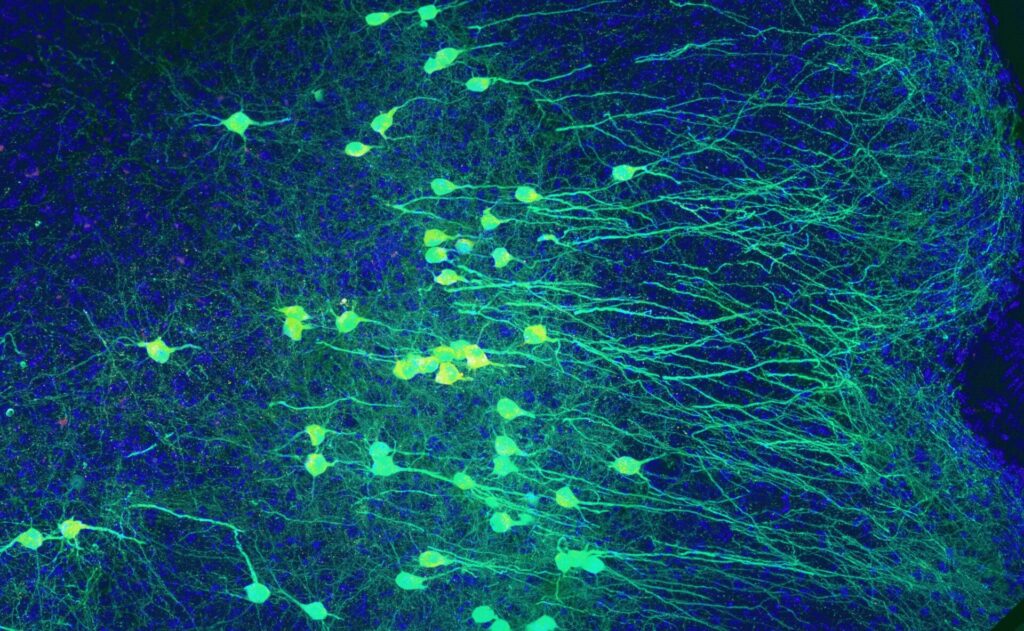
Projects
● Imaging neural activity with open-source miniscopes
● Photo-pharmacological and wireless optogenetic tools
● Thalamocortical processing of memory
● Methods for the development and characterization of genetically encoded biosensors
● Miniscope calcium imaging and analysis of the spatial code in CA1
● Comparing fluorescence-based sensors for dendritic imagining with in vivo 2-photon microscopy
● Activity-based tagging of neurons for functional dissection experiments
● 2-photon fibreoscope for imaging and holographic optogenetics in freely moving animals
● Computational analytical methods to link high-dimensional neuronal population and behavioral data
● Large-scale electrophysiological investigation of circuit dynamics
● Optogenetic silencing of synaptic terminals in freely moving mice
● Analysis of high dimensional neuronal data
(Illumination and equipment for in-vivo set-ups provided by Prizmatix)
Class of 2024
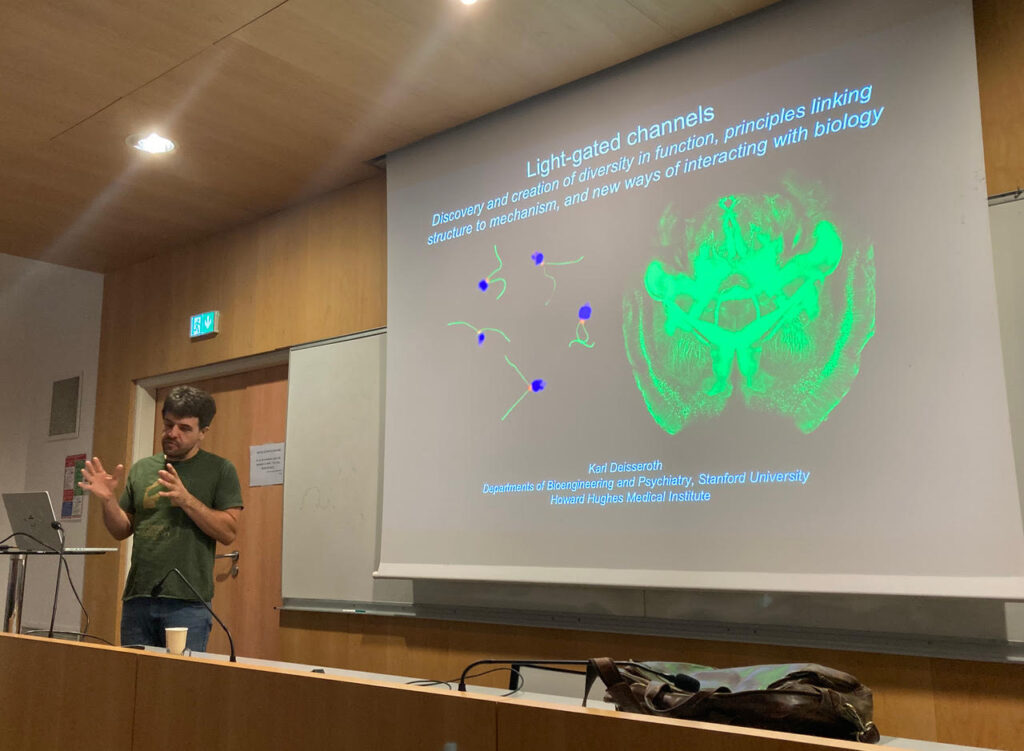
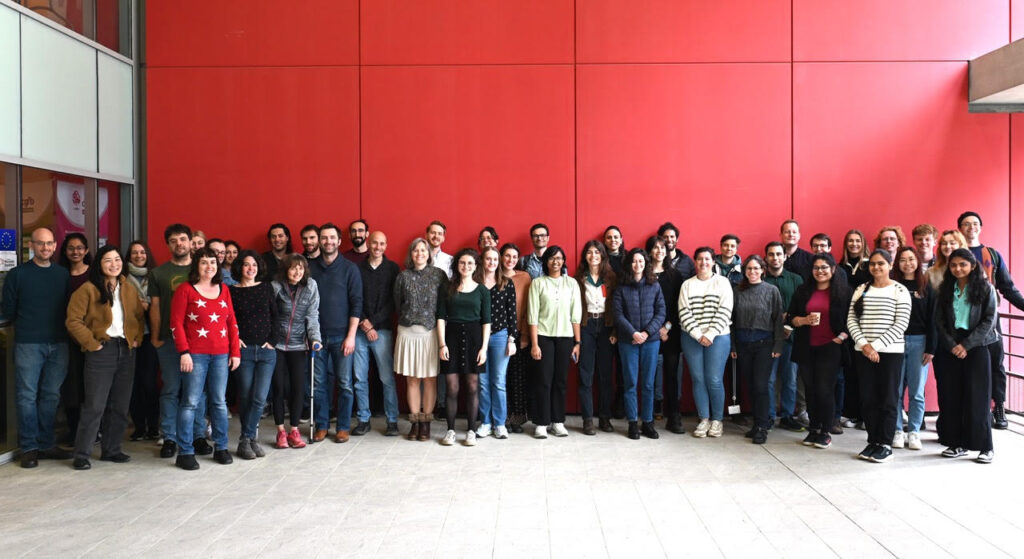
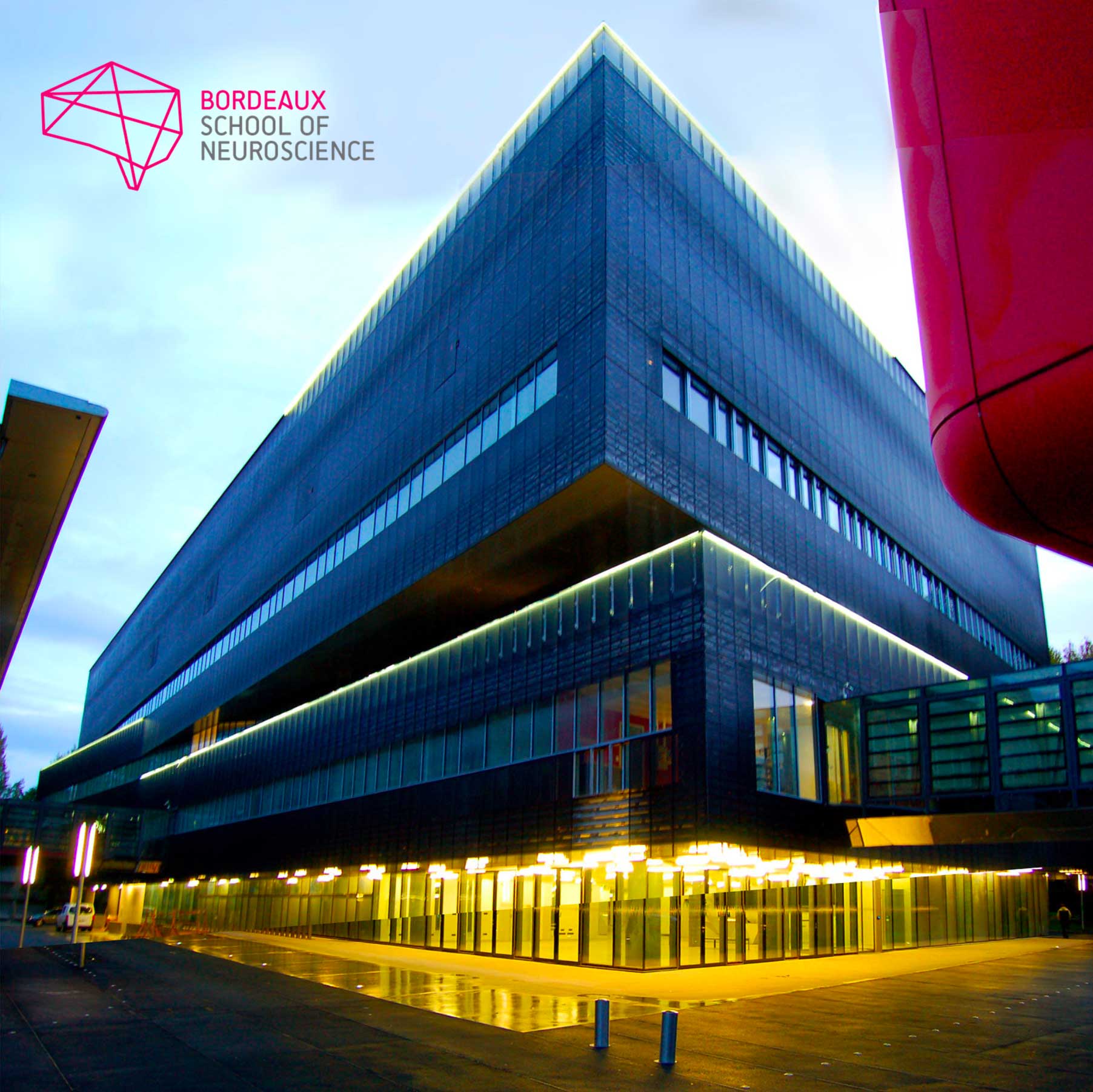
Bordeaux School of Neuroscience, France
The Bordeaux School of Neuroscience is part of Bordeaux Neurocampus, the Neuroscience Department of the University of Bordeaux. Christophe Mulle, its current director, founded it in 2015. Throughout the year, renowned scientists, promising young researchers and many students from any geographical horizon come to the School.
The school works on this principle: training in neuroscience research through experimental practice, within the framework of a real research laboratory.
Facilities
Their dedicated laboratory (500m2), available for about 20 trainees, is equipped with a wet lab, an in vitro and in vivo electrophysiology room, IT facilities, a standard cellular imaging room, an animal facility equipped for behavior studies and surgery and catering/meeting spaces. They also have access to high-level core facilities within the University of Bordeaux. They offer their services to international training teams who wish to organize courses in all fields of neuroscience thanks to a dedicated staff for the full logistics (travels, accommodation, on-site catering, social events) and administration and 2 scientific managers in support of the experimentation.
Registration
Fee : 3.950 € (includes tuition fee, accommodation and meals)
The CAJAL programme offers 4 stipends per course (waived registration fee, not including travel expenses). Please apply through the course online application form. In order to identify candidates in real need of a stipend, any grant applicant is encouraged to first request funds from their lab, institution or government.
Kindly note that if you benefited from a Cajal stipend in the past, you are no longer eligible to receive this kind of funding. However other types of funding (such as partial travel grants from sponsors) might be made available after the participants selection pro- cess, depending on the course.


